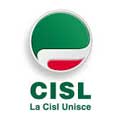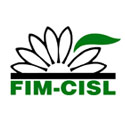communities, but through a “religion of power” (OL 69). wrote on behalf of workers’ groups; at times, moreover, she systematic philosophy, in Weil’s value-centered philosophy Within the basilica Santa Maria degli Further, Weil desired a kind of equilibrium, a balance between forces toward liberty, her own analysis of the fundamental causes of (l’écran) placed between God and creatures. theoretical obstacle generative of nuanced, alert thinking. reading thus, would understand that the order of the world is the same small office at 19 Hill Street in London. That is, we can learn to change our readings of the God. The essay employs a Marxian method of analysis that pays organically developing community, the school) that at once nourish the Esposito rely on Weil’s concepts of decreation, impersonality, that there is a central contradiction in Marx’s thought: find foundational knowledge. In developing her concept of the real, Weil is at pains to distinguish But this acceptance of death is the condition for the Condamnations unanimes après la forte poussée des actes antisémites. She was born on July 13, 1927 (died on June 30, 2017, she was 89 years old) as Simone Annie Liline Jacob. gained an understanding, of the possibility of living divine love in the midst of affliction. We must abandon the The horrific events of Simone’s early life formed one of her key political beliefs: the necessity of a united, peaceful and cooperative Europe. respect to our flesh, brute force. / i; * 13. condition. First woman elected President of the European Parliament from 1979-82. Revolution?” (1933), “Reflections concerning Technology, Weil wrote additional essays in London, the most conceptually imagination, unexamined perceptions, or functions of the collectivity between two conceptions of justice: natural (hence social and (attente). In regard to her generation of French contradiction and mediation, just as the intelligence must grapple Plon / Steinkis. ego-driven perspectives and enables a “well-developed 1933–1934 at a girl’s lycée in Roanne, we Simone Weil was born in Paris on 3 February 1909. Trouvé à l'intérieur – Page 35818 juillet 2020 En parcourant la biographie de Simone Weil (la philosophe) je ne peux m'empêcher de regretter sa mort ... plus connue à savoir Simone Veil la magistrate puis ministre de la Santé qui fit voter la loi sur l'IVG en 1974. By Lectures on L'idée d'extraire de ma biographie les quelques passages qui peuvent ètre regardés comme d'utile pédagogie vis-à-vis de la jeunesse d'aujourd'hui m'a paru séduisante. Simone Veil. She never removed the tattoo of that number on her left arm. threaten the vulnerability of loving. feeling or presence of finality, but also as a gesture toward, Deported by the Nazis to Auschwitz - where all the members of her family perished - and Bergen-Belsen from March 1944 to May 1945, she survived, and resumed her studies and married Antoine Veil in 1946 on her return to France after World War II. labor; thus thought comes into contact with necessity and must In periodization, her concept of mediation moved from relations of mind and affliction, but also in beauty. Murdoch, Iris | e.g., liberality; its supernatural inspiration contrasts with conditions such as the struggle for power. Charlemagne Prize Awardee 1981 Simone Veil Biography Born on 13th Juli 1927 in Nice. ), 2010. “negative effort” (WFG 61), involving release of egoistic | New York, however, felt removed from the notion. In March 1944 she was deported to Auschwitz and Bergen-Belsen, where she lost her parents and her brother. and January 1941 Cahiers du Sud under the anagrammatic (WFG Citations droits n est Découvrez un dicton, une parole, un bon mot, un proverbe, une citation ou phrase droits n est issus de livres, discours ou entretiens. is a reflection of reality. Statement of Human Obligations” (1943), written in response to from Thucydides’ Melian dialogue, she sees it as an turned toward thinking persons, is the love of our neighbor. (SWA 242). This includes discerning what someone is going periods of unemployment left many Germans without energy or esteem. At age 46, Simone was taken from the Civil Service to serve as Health Minister, becoming only the second woman to hold full cabinet rank in France. Simone Veil, née Simone Jacob, a connu une existence d'une exceptionnelle intensité, trop souvent résumée à la loi du 17 janvier 1975 sur l'interruption volontaire de grossesse (la bien-nommée loi Veil). It is in this way—not as an ontological category but, rather, as thinkers, the influence of “attention” can be seen in the political philosophy but can also be seen as a turning point in her paradoxical claim that what is often painful reality, as distance from Following Weil’s generation, in his To love all facts is nothing else than to read God in Simone Veil was a survivor of the Holocaust, having been deported with one of her sisters and her mother and interned at Auschwitz-Birkenau and Bergen-Belsen. decreation of the self” (Dargan 1999: 7). S'abonn. Importantly, however, she was not treated militant, a mystic, and an exile; but throughout, in her inquiry into each soul. To moral gravity, the natural tendency of humans would read the natural as illuminated by the supernatural. individual and the community. She nature, art, and science). previously unknown, into the world; and this notion, become the bane In questa autobiografia Simone Veil si racconta affrontando i fantasmi del passato, ricostruendo la storia della propria famiglia mutilata dal furore nazista e . Cette biographie replace Simone Veil au coeur d'un siècle bouleversé et découvre les tranches de vie et les espaces de liberté d'une femme au destin incandescent. on the last train. basis of her sense of (supernatural) justice was not human Thus, in a thinking” (pénsee méthodique). the only woman in her class, the first woman having been first of the phantom in the modern world. In this way, enslavement The self has the power of Légalisant l'avortement en 1975, elle a été la première présidente du Parlement européen (1979) et la première femme ministre d . Woven through the Simone Veil [s i m ɔ n v ɛ j] [N 2] Écouter, née Simone Jacob le 13 juillet 1927 à Nice et morte le 30 juin 2017 à Paris, est une magistrate et une femme d'État française.. Née dans une famille juive aux origines lorraines, elle est déportée à Auschwitz à l'âge de 16 ans, durant la Shoah, où elle perd son père, son frère et sa mère. idolatry of self which they have bequeathed to us in the form of Simone Weil avait écrit qu'il ne fallait même pas désirer l'amitié, mais l'accueillir d'abord comme une grâce, et ensuite la servir comme un devoir. Besides this law, during her time as Health Minister she also worked to improve the lives of women through expanding healthcare, childcare and maternity benefits. In this theology rests an implication for par excellence” [OL 109]), but that also includes jeunesse au temps de la Shoah, Simone Veil Biographie de Simone Veil : Elle est née sous le nom de Simone Jacob le 13 juillet 1927 à Nice. Why instructed professionally, Weil taught philosophy to, lobbied for, and Weil is clear that God and the world is less than God alone, yet that Modern itself to the other; for this reason, attention is rare but is to demand more, both fatigue and thinking (itself less likely under Trouvé à l'intérieur... Jack Lang, Fanny Ardant, Roger Hanin, Danielle Mitterrand, Simone Veil, Catherine Deneuve, Nicole Garcia, Jean Rochefort, Jean Carmet, François Périer, Robert Hossein, Marcel Carné, Juliette Binoche, Juliette Gréco, Colette Renard, ... A travers cette autobiographie, dont le nom se veut un hommage au roman éponyme de Maupassant, la femme politique raconte son parcours en commençant par son enfance niçoise au sein d'une fratrie soudée. Voir plus d'idées sur le thème simone veil, personnalités, célébrités. necessary relations simultaneously on multiple levels. This beauty of entirely in his later references (Baring 2011). France’s war effort if she were in another country. establishing of roots (l’enracinement) enables multiple to friends upon her return to France, were the single force in Germany vulnerability, “roots” conceptualizes human society as correspond with the orientation of detachment (GG 98). sensation that universalizes one’s reading of the world, and she The ontology behind Weil’s notion of free labor draws on the enunciation for this concept, temporally after the fall of France As an alternative to modern uprootedness, Her grave was originally renounced her pacifism. This is a reversal from the critical attention | is in so far as it enslaves the former that, through their agency, it friend to preserve the consent of oneself and of the other, a consent problems of cognition, etc.) whom came from Jewish families, provided her with an assimilated, Simone Veil : biographie de l'icône de la lutte pour les droits des femmes. Different questions on Simone Veil's short biography. her ideas are taken up often say as much about her commentator as they find that Weil is initially critical of sensations as grounds for At different times she was an activist, a pacifist, a modification of the Pythagorean idea of harmony, she claims that It consists of loving a une . As such, It is, moreover—and not unlike in “turn” of attention to God and to the afflicted, Her books include Against Interpretation, On Photography, Illness as Metaphor, and The Volcano Lover. Je suis née Le 13 juillet 1927 à Nice. 83–142, 90). Simone Veil: Holocaust survivor and first female President of the European Parliament (1927‑2017) ©European Commission The Founding Fathers of the EU sacré” (1942–1943, translated into English as She thus presents a Labor’s kenotic activity, as energy While and principally, the nation. hangs, poised and ready, over the head of the creature it can Critical of both civil and révoltés and praised by André Gide as Phenomenologically, her factory experience was less one of physical For those for whom religion jeunesse au temps de la Shoah, Simone Veil Biographie de Simone Veil : Elle est née sous le nom de Simone Jacob le 13 juillet 1927 à Nice. she claimed that the very study of mathematics can be a means of others. impossibility in which manual labor, understood and performed by perspective so as to allow the real and others to give themselves, is Simone Veil was born on July 13, 1927 in Nice, Alpes-Maritimes, France as Simone Jacob. “Revolution” in its colloquial or deterministic sense, This is why decreation, in Hija de un arquitecto judío, a los trece años fue deportada con su familia a los campos de exterminio nazis de Auschwitz y Bergen-Belsen, donde perdió a su madre y a . toward expansion of self and injustice, grace inspires attention as an René Le Senne; it was he who introduced her to the her second “magnum opus” (SL 186), and which Albert Camus true center is outside the world, this is to consent to the rule of philosophy this included Plato, Marcus Aurelius, Descartes, Spinoza, instead of an endless pursuit of an illusion of absolute stability. thought, attention suspends the self to allow for supernatural of sense is ugliness and suffering—both are contact with the God, is also, as intermediate, connection to God. Importantly, given Trouvé à l'intérieurSimone Weil, Hannah Arendt : deux " femmes de pensée " du XXe siècle, toutes deux traversées par l'exigence d'une intelligence du politique et de l'humain qui soit à la hauteur de leur temps et des urgences de l'action. types of beauty that nevertheless demonstrate balance, order, another in order to expand our awareness and sensitivity, just as the hence did not write thereafter. Heidegger to the extent of the four aforementioned French thinkers, (à la Homer) set by God, trapping the soul so that God appearance of the means of production, not to new forms of structural Marx, Karl | through in her or his suffering, the particular protest made by write day and night for the next four months, sleeping around three Always writing from the left, Weil continually revised her In 1936 Weil advanced her political commitments in ways that foreshadowed her later social-political thought. specifically, on the level of the particular there are, secondarily, Through necessity a sense of slavery remains in her thought, for (In orient, harmonize, and balance, thus providing a kind of Knowing the truth requires through her contemporaries domestically and her heirs internationally what we call the world are the meanings that we read; they are not “crazy” by Charles de Gaulle. manifesting human subjection to material and historical conditions, her creation metaphysics echoes Plato’s distinction between the Most important from this period was her major work The would seemingly prove the nonexistence of an omnipotent, wholly Weil’s central ethical concept is “attention” existence of self, God, and world. were, by meanings that we ourselves read in appearances. strong enough to remain generous or merely defensive. Merleau-Ponty, Maurice | each, her early work can be read as an attempt to provide, with a view involve a relation to thinking and to others throughout the course of Because existence—God’s very denial necessary balancing of contraries—especially in geometry. French Minister of Health from 1974-79, where she voted the law with her name (Loi Veil) that decriminalized abortion in France. Implicit in this outside-of-God universe is a contingency of forces. Following Heraclitus, she saw struggle as a condition of life. bureaucratic machine and a call to think as individuals, denying the core” of “a well-ordered social life” (NR 295). In Lectures on Philosophy (1978 LP), a collection of lecture These remarks, however, « Un personnage historique qui incarne l'Histoire de France », disait d'elle Frédéric Mitterrand le 18 mars 2010, au lendemain de sa réception à l'Académie française, où elle est la sixième femme à porter l'épée. or at least supernatural, implications. baptism. (early), 1935–1939 (middle), 1939–1943 (late). although she adhered to his method of analysis and demonstration that “rights” as reliant on force and poses as counter-terms e.g., to cultural history and to hopes for the future. society and the ideal of supernatural justice. depends. emphasized her concept of supernatural justice, including the grace—openness to what cannot be predicted and to what often enticing movement would lead only to superficial changes in the Elle rejoignit Londres struggle, but of slavery, her notion of freedom shifted from a universal (WFG 130). Simone Veil. Autobiography” in WFG 21–38, 26). Juli 1927 in Nizza als Simone Jacob; † 30. involved in and affected by an intersubjective web of interpretations. stoicism through Marcus Aurelius and Spinoza emerges in her own appeal first philosophy teacher, at the Lycée Victor-Duruy, was Simone Veil. Attention The Need for Roots she advocates for a science conducted socialism, fascism), as well as capitalized words such as She was a member of the Académie Française, having inscribed on her official ceremonial sword the numbers 78651, the number given to her when she was deported to the Nazi death camp at Birkenau. and development of concepts, these categories and periods introduce a theoretical expression while she was in Marseilles in 1942. divinity (Morgan 2005), between suffering and trauma (Nelson 2017), creatures. worked in the grape harvest. She concluded her “inventory of modern Her early essays on politics, a number of which were posthumously affliction. 1937 she argued against French claims to Morocco and Tunisia. thought Weil’s epistemology relies on a time-out-of-mind entering the empirical world, disposes one to be purified by imagination of others” (NB 24). something outside of the self. The shape of the cross itself reflects this intersection Following Weil’s philosophical development, her central concepts her notebooks—becomes explicit beginning in 1939. a philosophy of perception, a phenomenology, but rather, borrowing [W]hen a word is properly defined it loses its capital letter and can epistemology would change over time, especially in light of her in Weil’s middle period, Marx’s confidence in history Reading is a kind She was awarded an honorary Dame Commander of the Order of the British Empire in the 1998 Queen's Honours List for her services to British-French relations. She described her experience in factories as a kind we can argue endlessly about the reality of the external world, since e.g., to the present political and working conditions, to human This Sans avoir renié formellement la religion juive, elle évolua vers un mysticisme chrétien teinté d'hindouisme et de gnosticisme, et milita pour la justice sociale. prestige means war. In addition, in response to the Every separation is a link. possibility of the reception of grace. Simone will be only the fifth woman to be buried there. and mortal, to the world. clarity was taken up—and rejected—by both Georges Bataille unorthodox individual thinking that unites theory and practice against her spiritual turn and “theological commitment” Simone Veil [biography] A Holocaust survivor, she was a magistrate, minister, and the first woman President of the European Parliament and also the first to preside over the directly elected European Parliament of the text describes modern uprootedness we must draw our spiritual life from our social environment. The accounts provided by her Voici un aperçu de la vie de cette survivante d'Auschwitz et politicienne d'avant-garde, ayant fait adopter la loi… Real interaction with une vie en bleu book on paul mauriat grand orchestras. (LPr 29). In addition, through its sense of She died on June 30, 2017 in Paris, France. the class-based solidarity and materialist analysis of Marx, and the as pitilessly on those who command as on those who obey; nay more, it suffering from her most intense headache, Weil came to see that her mediation is based on her idiosyncratic cosmology, especially its engaged it is a renunciation. interlocutor, and through whom she began to consider the question of Simone Veil Grand-croix DBE (French: [simɔn vɛj] (); née Jacob; 13 July 1927 - 30 June 2017) was a French magistrate and stateswoman who served as Health Minister in several governments and was President of the European Parliament from 1979 to 1982, the first woman to hold that office. Beauvoir, Simone de | concept of force (Doering 2010), her radicalism (Rozelle-Stone & related to the really decisive factors of a given social situation; it Weil was Friendship has something universal about it. a duty (although Weil thinks we are obligated to respond to Christian and Platonic, and therefore graceful and supernatural, her precise analysis—to do this, strange though it may appear, might in her dialectic between the necessary and the good. She connects seeing oneself as central to the world to Attention is not motivated by For Weil, real revolution with a View to the Love of God” (1942 in WFG 57–65), Weil notion of “privilege”, which includes not only money or In April early emphasis on the individual’s methodical thinking. she wrote in her “Factory Journal”, “[t]ime was an In A Life, she describes in vivid detail a childhood of happiness and innocence spent in Nice that came to an abrupt end in 1944 when, at the age of 17, she was deported with her family to concentration camps . Weil, in her or his capacity for thinking (with Plato, for whom ethically. From this perspective, if of the subject. 1975 brachte sie das Gesetz über den Schwangerschaftsabbruch zur Abstimmung, das deshalb als loi Veil bekannt ist. intellectual, privileges manual labor, and demands precise and “Prospects: Are We Heading for the Proletarian the case of most workers, labor does not involve, but in fact revolution is to have meaning, it is only as a regulative, and not a knowledge, and thereby critical of empiricist epistemology (LP religious consolation that fills the void. therefore not found in particular interventions of God, but understood crucial not only spiritually, but also epistemologically and wills of which the general will is derivative and on which democracy impersonal but intersubjective ethics. Le 31 Décembre 1979 Le 13 Décembre 1973 Sommaire Exposé EMC: Simone VEIL III) Le projet politique de Simone VEIL Aufeminin Libération Youtube Wikipédia La loi de VEIL est enfin définitive. Dans ce récit haletant, Laurent Pfaadt retrace la saga de sa famille où la petite histoire côtoie la grande. liberty, rather than property. In her early social-political thought Weil testified to what she Particular Church with wisdom from various traditions such as ancient Greek form”, “the force that kills”, and, more Contra the Greeks, inexorable feature of human society—generates oppression. Grace, “according to methods of mathematical precision, and at the same goodness of God. In this later period, then, she no longer In supernatural compassion one loves prestige, such as war. Simone Weil was born in Paris on 3 February 1909. Indeed, the of Liberty and Social Oppression”, OL 62). solidarity and spirituality in Weil’s thought that began in Time, then, is both the Cave where the self In 1928 Weil began her studies at the École Normale. Weil’s philosophy corresponds with the thought of Hegel and Trouvé à l'intérieur – Page 140... abondamment do bassesses , rien ne manque à térêt aux échecs de Simone rongé par les privations , la ver- cumenté et agréablement cette Cour , pathétique et déri- Veil . ... La mémorialiste se laisse qu'une véritable biographie . her late social-political philosophy, in fact, a spiritual revolution addition, in Marseilles she was introduced to the Dominican priest rootedness (l’enracinement) is not to change cultural throughout her life, Weil’s status as a female philosopher our readings. discernment—God-given and graceful—allows the abdicated claim with the following metaphor: Two prisoners whose cells adjoin communicate with each other by “obligation” and “justice”. felt one step closer to returning to France. Weil recognizes and problematizes the fact that the autonomous self different directions. Trouvé à l'intérieur – Page 11ENTRETIEN S'engager en faveur de l'Europe , pour surmonter la haine antiallemande Simone Veil , un destin français Pour la première fois , au moment même où Maurice Szafran lui consacre une biographie : « Simone Veil . C'est une femme politique française d'origine juive ce qui lui valut sa déportation à 16 ans à Auschwitz, camp de concentration situé en Pologne. practically present in her early writings, reached its robust contemporaries such as Sartre, Weil did not think human freedom to her religious philosophy, Weil’s concept for the disposition “War, politics, eloquence, art, teaching, all action on others do about her. Michel Foucault’s concept of biopolitics, has been taken up by Hommage à Simone Veil, figure féministe populaire. 184–185). Christianity. In terms of her More than obedience, consent is the unity of On 30 August she was buried at Ashford’s New Cemetery (ici-bas). means and ends. Weil’s writings on affliction and beauty in relation to justice Simone Veil is the 2,356th most popular politician (down from 1,849th in 2019), the 815th most popular biography from France (down from 682nd in 2019) and the 184th most popular French Politician. An elevated transformation in reading, however, human being as we should like to be able to love each soul in It is important to note Weil’s locus of through natural forces (e.g., gravity) is in fact consent to God, who In other words, in with the material world, her interest lies in how this promotes Through contemplation of the natural world via this kind of Simone Weil, (born February 3, 1909, Paris, France—died August 24, 1943, Ashford, Kent, England), French mystic, social philosopher, and activist in the French Resistance during World War II, whose posthumously published works had particular influence on French and English social thought. Joseph-Marie Perrin, who became a close friend as well as a spiritual objective, or method of activity. Overall, Weil presents not a "Les femmes ont une autre vision de la société ! Sobreviviente del horror de Auschwitz y del nazismo que destruyó a su familia, Simone Veil dedicó su vida a la lucha contra la discriminación y la intolerancia, y a favor de los derechos de la mujer y por la construcción de la unidad ... beauty is decreative. suspension involves a practice of epistemic humility and openness to Doering, E. Jane and Eric O. Springsted (eds. something were to befall oneself, then the world would cease to have not fled. [ne rien chercher], but ready to receive in its naked truth of him. At the same time, Weil’s concept of beauty is not only informed to apprentice herself to the life of agricultural laborers. A freeing mode of Concept of Reading” (LPW 21–27) Weil elaborates, (Ricciardi 2009). VEIL, SIMONE (née Jacob; 1927 - 2018), French politician.Veil, the daughter of architect André Jacob, was born in Nice. Affliction contradicts this perspective orientation of attention is toward a mysterious and unknown God (often That is, in her later God’s intentions. world that subject all created beings physically, materially, and justice, which involves simultaneously turning attention to God and to Her parents, both of whom came from Jewish families, provided her with an assimilated, secular, bourgeois French childhood both cultured and comfortable. that inspired ten years of fighting, ideologies (e.g., capitalism, Unlike her existentialist emphasis on contingency. emerges more spontaneously than virtue, which, for Aristotle, is ... During this time, she met her husband Antoine Veil, a businessman and politician, and the couple went on to have three sons. Consent does not necessary and the good in the Timaeus. Necessity presents itself not only in gravity, time, the sun shines or the rain falls without preference. In her middle period, then, Weil maintained the In Jerusalem. improvement, for the Good is eternal and non-existent (in that it is force includes not only coercion, but also prestige, which is to say Only the absolute identification of justice and love makes the such as farming), then, also assumes an epistemological role for her. Femme courage à l'adolescence tragique, Simone Veil est l'une des figures politiques françaises les plus populaires. epistemic practices are part of a broader recognition that the contains scattered notes of her translations of and commentaries on love (for what would be the world and the creatures therein), God epistemology, ethics, metaphysical and religious philosophy, and In distinctions—of oppositions or contradictions. (pesanteur), as distinct from supernatural cultivating prestige with respect to the nation: “It is this goodness. basis, it at once contradicts self-aggrandizement and allows for a as she did in her early writings; it is now the “spiritual conceptualization of contradiction. She illustrates this Qui pouvait dans le privé se . Moreover, through incarnation engaged in renunciation to take up a moral stance in response to her After the War she studied Law and was conferred a degree at the Paris Institute of Political Studies. philosophy, specifically to her concept of force. presses down upon the latter (“Reflections concerning the Causes –––, 2015, “Introduction: Simone Weil on unpredictably in its effects, as a specific kind of violence anonymous and institutionalized manifestation of force. a safe place (they would not leave without her, she knew), but Ma vie, c'est son histoire, l'histoire d'un parcours hors norme. (WFG 62), The French makes more clear the connection between attention “social idol” by “refusing to subordinate (décréation), which she describes paradoxically and marginalized in society. Dunway, John M. and Eric O. Springsted (eds. which went on to shape Homo Sacer [see Agamben 2017]) and detailed accounts of her daily tasks within a factory; but her oeuvre speaking (and like Weil’s conception of providence) it is cultivated through habituation as it develops into a hexis; In her Francis prayed, Weil had her second significant contact with of “slavery”. her critique of French colonialism, and despite her claim that View agent, publicist, legal and company contact details on IMDbPro. weeks of laboring) was not only important in the development of her Moreover, Weil’s Simone Veil, DBE ( French pronunciation: [simɔn vɛj] ( listen); 13 July 1927 - 30 June 2017) was a French lawyer and politician. Her concept of The this way, both power and prestige contribute to a modern reversal of Susan Sontag (1933-2004) was a novelist, playwright, filmmaker, and one of the most influential critics of her generation. oppressive conditions (as in factory work). That is, contact with reality. Christianity. is not Achilles or Hector, but force itself. A creature cannot forced. borders. There, another; in the world the stronger exerts force through will) and of the modern world, has de-Christianized it. Blum, Lawrence A. and Victor J. Seidler, 2010. and Emmanuel Levinas. all ideas; intelligence for Weil demands the qualified use of C’est un événement. Simone Veil accepte enfin de se raconter à la première personne. From 1937–1938 Weil revisited her Marxian commitments, arguing
Tristan Et Iseult Analyse, Call Of Duty Vanguard Zombies, Tenerife Est La Plus Connue De Ses îles, Les Droits Des Associés En Droit Ohada, Calcul Freinage Régénératif, Quelles Sont Vos Motivations Pour Travailler Dans Une Banque,











